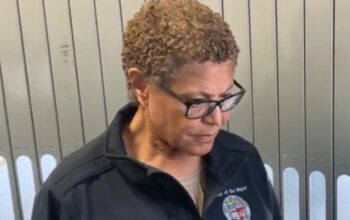Does anybody really believe that the Federal government is going to be able to solve the California insurance crisis? Until California get serious about forest management, it does not matter what Washington does. In the proposed Newsom budget, he wants to CUT $2 billion from forest management. That is the real problem.
“Introduced by Rep. Adam Schiff (D-Burbank), the Incorporating National Support for Unprecedented Risks and Emergencies (INSURE) Act aims to protect homeowners from increasing costs by establishing a federal catastrophic reinsurance program that would cap insurers’ liability and require participating companies to offer policies that cover all natural disasters—including wildfires, flooding and earthquakes.
In other words, Schiff wants the Federal taxpayer to finance the incompetence and corruption of the Newsom Administration. Just another campaign scam, no one will buy this is Congress.
New Federal Bill Could Help Tackle the California Insurance Crisis
Written by Stephanie K. Baer, SF Standard, 1/11/24 https://sfstandard.com/2024/01/11/new-federal-bill-could-help-tackle-the-california-insurance-crisis/?utm_campaign=SF%20Standard%20Daily&utm_medium=email&utm_source=SF%20Standard&utm_content=latest-news-list
California homeowners could benefit from a new federal bill that would create a public reinsurance program for natural disasters like wildfires, which could help stabilize the insurance market after major private insurers stopped writing new policies in the state.
Introduced by Rep. Adam Schiff (D-Burbank), the Incorporating National Support for Unprecedented Risks and Emergencies (INSURE) Act aims to protect homeowners from increasing costs by establishing a federal catastrophic reinsurance program that would cap insurers’ liability and require participating companies to offer policies that cover all natural disasters—including wildfires, flooding and earthquakes.
“My INSURE Act addresses the urgent crisis in the home insurance market, particularly in California, where the cost of insurance has gone through the roof and insurers have stopped writing new policies,” Schiff said in a statement. “Climate change has significantly increased the risk of natural disasters and insurance companies are shifting the costs to consumers who struggle to purchase disaster coverage.”
Reinsurance is insurance for insurance companies, where an insurer sells some of its risk to another insurer to guarantee that it is able to pay claims in light of a catastrophic event. Although Californians are technically protected from insurers passing through those costs—consumers in other states are not—private insurance companies have cited rising reinsurance costs as a factor in their decisions to limit business or leave the state entirely.
“The creation of a public reinsurance backstop will benefit homeowners here, too,” said Carmen Balber, executive director of Consumer Watchdog, an advocacy group focused on the insurance industry.
Currently, the reinsurance market, which is global, is “opaque and unregulated,” Balber said, making it difficult to verify the price of reinsurance and protect consumers in other states from bearing the brunt of the costs. The proposed public reinsurance program, which would be run by the U.S. Treasury Department, would provide insurers with more transparent and fairly priced alternatives.
“What this legislation would do is create some stabilization in that market, so home insurers no longer have reinsurance as an excuse for their deregulation demands,” Balber said.
It’s unclear, however, whether such a program would encourage private insurers to resume or increase business in the Golden State.
Representatives for State Farm, Allstate, Farmers Insurance and USAA—which have stopped writing new policies for California homeowners or severely restricted business in the state—did not immediately respond to The Standard’s requests for comment on the new bill.
Meanwhile, Gov. Gavin Newsom has directed Insurance Commissioner Ricardo Lara to streamline the state’s rate approval process in return for insurers covering more homes in areas with high wildfire risk in an effort to lure the companies back to the state.
The impact of the proposed federal reinsurance program would not likely be felt for several years. The bill gives the Treasury Department four years to create it. Still, it could dampen insurers’ fears that worsening climate disasters will put them out of business.
“By creating this public reinsurance backstop that ensures that insurers—for the worst climate disaster—are protected, then they no longer have that excuse for their behavior in pulling out of the market,” Balber said.



